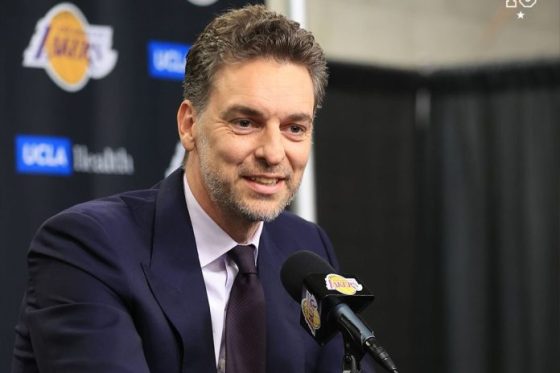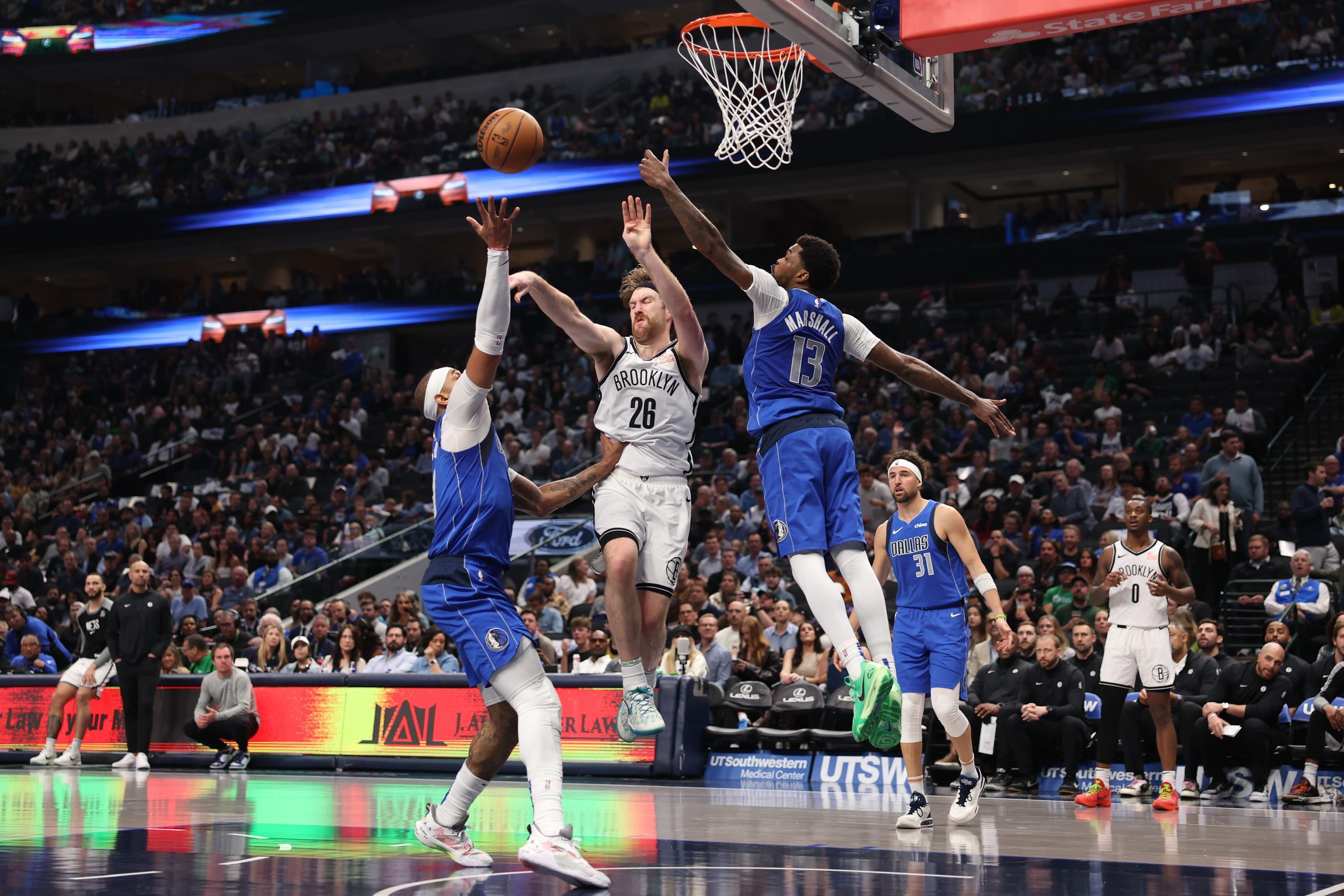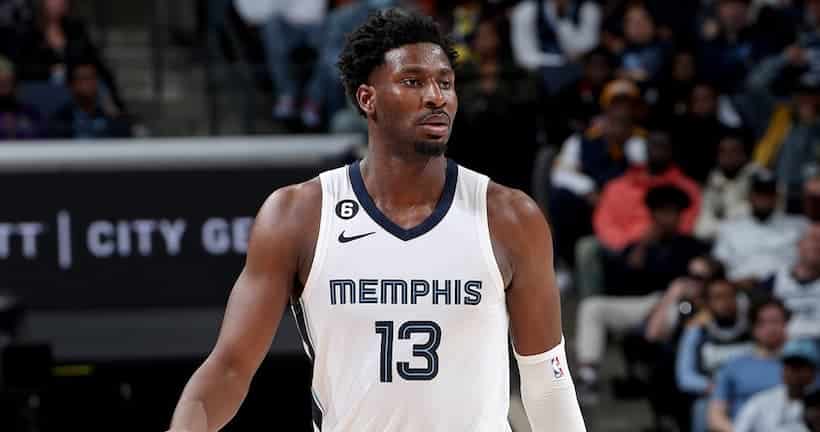The left hand. Game 7 of the Eastern Conference Finals. Charles Barkley even brought up the gardening incident this week. Few players heard as much criticism this summer as Celtics star Jaylen Brown.
“I love the way (Brown) carries himself,” Barkley said. “(But) I don’t know what he was doing gardening. Hey, Jaylen. You’re rich now. Pay somebody to garden for you. I don’t work in my damn yard.”
In the world of professional sports, success breeds increased scrutiny. After an All-NBA regular season campaign, Brown helped extend Boston’s postseason, which stood in jeopardy twice before his ill-fated flop agains Miami. If the Celtics didn’t defeat the Hawks and Sixers, who Brown averaged 22.9 points and shot 54.1% (43.2%) against, Jayson Tatum would’ve received the sharpest rebuke of anyone in the NBA for his playoff shooting slump.
Boston’s stars should share the blame for a step back from 2022, and they’ll assume the responsibility of stepping forward next year. It’s mandatory in order for them to cement their legacy together — something contract extensions alone won’t do.
“I don’t shy away from pressure,” Brown said last month after signing his deal. “I know what the demand is, I know what the expectation level is and I know the work that is required. Everything about me is about work, so I look at is as just another challenge to get better, another challenge to prove. I don’t think nobody has seen my best yet, and so, God willing, I’ll be able to put my best foot forward and do what I do best.”
Photo by Pat Greenhouse/The Boston Globe via Getty Images
The widespread reporting that Brown’s new contract surpassed $300 million (when it’s actually likely closer to $288 million) hit spectator eyes as harshly as Game 7. What should have been a celebratory culmination of his hard work and faith instead changed the perception of Brown for many, and that microscope will only intensify more. Despite the Celtics’ success over the last couple of years, that many zeroes comes with added pressure.
In pairing Kristaps Porziņģis with the Jays, the Celtics are pivoting now and possibly later. They done so while extending Brown, acknowledging how he adjusted his role to thrive in tandem with Tatum for most of 2022, the leaps his scoring ability continues to achieve and his knack for the big stage and difficult shots.
“There’s nothing wrong with doing your job on the team,” Brown said, acknowledging his his stature on the roster. “Being able to humble yourself and be like, ‘yeah, I know I could be something somewhere else, but there’s no problem being a great team guy and winning here in Boston.’”
Brown not so quietly struggled with Tatum off the floor this past season, and it became one of the team’s defining faults from start to finish. Boston’s net rating improved by 4.7 points per 100 possessions with Tatum on the floor compared to off. It worsened with Brown on, compared to off, by 6.1 points per 100, which ranked in the 21st percentile of on-off differentials in the league.
The Celtics posted a 113.7 offensive rating, with Brown on the floor and Tatum sitting. That would rank bottom-10 among teams with Boston outscoring opponents by 3.2 points per 100 possessions in those minutes. In the playoffs — that net rating fell to -7.7.
The reasons why won’t surprise anyone. Brown shot about as well in the postseason (49.6% FG) and even saw a bump in three-point shooting, but his efficiency at the free throw line (68.9%) dipped while he committed 66 turnovers, nearly one for each of his 68 assists. That rate worsened compared to recent years in the regular season too, giving the ball away 197 times after 178 in 2022 and 158 in 2021. Brown, overall, has averaged 2.2 assists and 2.0 turnovers through his seven NBA seasons.
“I wanted to push the pace, but if you’re not running, you gotta make sure you take care of the basketball,” Brown said after Game 1 against Philadelphia. “I could’ve played in transition there, but if I don’t have any outlets and nobody’s running, it’s a bad possession. You always want to make sure your guys are running with you. Right there, I just felt like I was running by myself.”
Joe Mazzulla already shifted Brown’s role significantly last season, featuring him more often as a screener and finisher following passes from teammates. Ime Udoka, by comparison, imagined Brown more as a primary facilitator. Brown’s percentage of attempts inside the arc (57.6%) reached a career high, and the percentage of his twos assisted by teammates (47.7%) increased to his highest share since 2020, when Brown mostly spotted-up offensively. He’ll need to do more of that again in 2023-24.
That Brown moved less comfortably into Tatum’s role in Game 7 shouldn’t have shocked anyone. Brown was less accustomed to drawing two, moving off the ball and repositioning himself. His teammates also struggled to hit shots. The drive-and-kick offense grew stale and predictable.
That’s not to absolve Brown of a disastrous Game 7 effort, but given Derrick White shot 5-of-12 (2-of-9 from 3) on the same night, the effect of losing Tatum impacted everyone. Tatum’s impact allowed the Celtics to outscore opponents by 12 points per 100 possessions with him on the floor and Brown off during the regular season.
“The emphasis, for me has been more off-ball, setting screens, being a roller, playing more off-ball,” Brown told CLNS Media in November. “Sometimes it feels better to just get in a rhythm. Then when the ball comes to you, you can be the one making a play and be the one creating for other. That helps you get going. (I’m) just trying to find that balance, being aggressive and continuing to find different ways to be impactful in the game of basketball. Joe from day one has challenged all of us and that’s a challenge for me.”
Now, Porziņģis’ arrival allows him to pull some second unit ball time away from Brown. The Wizards posted a 117.6 offensive rating in its Porziņģis-led units with Bradley Beal and Kyle Kuzma off the floor, which would’ve ranked second among NBA offenses. When Brown brings the ball up in those sets, Porziņģis’ presence rolling and popping will simplify Brown’s reads and hopefully reduce turnovers, while Porziņģis’ shot-making should increase Brown’s assist totals and reduce the minute load on Tatum.
“In this day and age, you benefit from having a big that can be the hub at times,” Brad Stevens said. “It doesn’t have to be all the time, but can be the person the offense flows through and you can get cutting off of it.”
Smart often functioned as a screener-and-roller next to Tatum and Brown, throwing outlet passes into transition plays and kicking the ball out on the roll. Smart made passes in those situations better than both Porziņģis and Brown can, but putting the ball in the basket can sometimes be the best play. Porziņģis shot 38.5% from three last year, created 1.18 points per possession as a roll man and 1.20 PPP on transition plays.
Celtics shooters not named Smart all hit over 36% of their threes following Brown’s passes. Brown posted 0.98 PPP running pick-and-roll (76th percentile) and 1.25 (75th percentile) PPP in transition. Mazzulla constantly stressed spacing so Brown and Tatum could finish 70% at the rim. Brown fell to 67% during the playoffs as his shot-making deteriorated.
Brown and Tatum’s on numbers (+5.7) could use improvement, reflecting their continued search for seamless chemistry on offense. They’ll need to create less “my turn, your turn” and more fluidity in the same actions. Brown hitting more pull-up jumpers (54 eFG%) would help form trust in Tatum screening for him.
At this point, trusting Brown to initiate plays with Tatum and White on the floor doesn’t make sense, but neither does leaving him in the corner. For Tatum’s part, taking action after getting off the ball would allow Boston’s offense to function more Warriors-like beyond its three-point reliance.
From a contractual standpoint, a Porziņģis pay cut in his extension and White’s first-year salary on an extension getting capped beneath $30 million won’t prevent difficult decisions. Boston will pay all that tax money for a champion, but Porziņģis undoubtedly arrived to give the Celtics options in each of the next two summers. Will Brown and Tatum prove to be the combo that’s nearly unbeatable when they each score 30 points, or the one-two punch that can’t operate when the one is missing? We’ll find out.
Extending both stars allowed for a longer assessment, and while acknowledging the strides (not to mention availability) that made Brown eligible for such a massive deal, it requires that Brown improves. Leads. Defends.
For a Celtics team overflowing with individual skill, improvement will come within the flow of the offense, the continued heel in Boston’s quest for a championship.
“There’s no harder person than he is on himself,” Mazzulla said of Brown. “He puts the expectation on himself which is great and it makes it easy to coach him. It makes it easy to work with him and then, he’s just always open. He’s very open-minded, he never misses a day and he does a great job of having a routine and bringing it every day, whether he’s in the film or on the court. You don’t have to tell a guy like that anything, except work with him, be next to him, support him and he’ll just get better and better.”






